Already a week has passed since this year’s 2021 UK Knowledge Mobilisation Forum. The Forum is always a highlight of my year and this year it was especially so, seeing as we had to COVID-cancel last year’s Forum. It’s a joy being part of the organising team (yes, it’s as fun as it seems!) though this year, I think it’s fair to say we were a tad nervous about going totally virtual…
So, I know I’m biased, but I think it worked really well as a virtual event. Although it’s always lovely to meet people face to face, the different formats offered a variety of ways to connect – from interactive keynotes; to fireside chats with poster presenters; deliberative workshops; short but sweet knowledge fayres; and a Padlet knowledge wall. And the virtual format brought its own benefits, making it possible for people to join from around the world and lending the Forum an international flavour (full respect to Rachelle joining from New Zealand!). It was interesting to explore together what the virtual environment means for knowledge mobilisation. And on our final day of the Forum, we got to explore this in depth as Ian Rodwell expertly led discussions on the value of liminal spaces for sharing knowledge and how we achieve this in a virtual context.

To kick us off at the start of the week, Annette Boaz shared perspectives on what it means to be a knowledge broker, informed by her experience as a researcher and more recently, as a practitioner during the pandemic. We discussed what qualities are needed in a knowledge mobiliser, coming up with even more to add to Annette’s list.

The role of the knowledge mobiliser as the intellectual history of an organisation resonated in particular – in the context I work in, I can see a network of people emerging as the collective intellectual history of a healthcare system. Related to this theme on roles and competencies, the poster from Peter van der Graff and Travis Sztainert on Imposter Syndrome echoed the pressures we all feel from time to time. One of the themes running through the Forum was figuring out how we know if what we’re doing is working. Laura Meagher and Leo Curran shared their building blocks for understanding impact in a very fast-paced knowledge fayre. Rachelle Martin also used these building blocks to assess the impact of her work with peer-support providers in New Zealand.
These are just a few selected highlights from a great week and an enormous High Five to all the contributors and participants for engaging with the virtual platform. Hoping we’ll get to run the 2022 Forum in person….
Blog originally published at https://www.linkedin.com/pulse/knowledge-fiesta-alison-turner/
